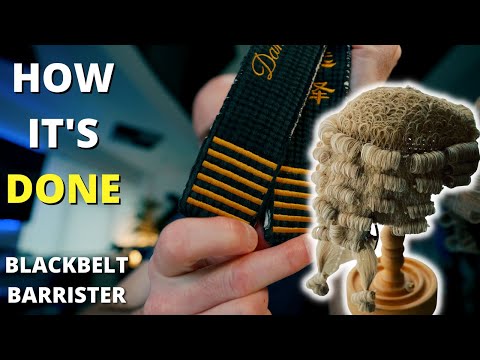
Welcome to this informative article on the topic of “Understanding the Legal Recourse: Can You Initiate Legal Action Against a Barrister?” In the realm of US law, it is crucial to have a clear understanding of the legal avenues available to individuals who may feel wronged or dissatisfied with the services provided by a barrister. However, it is important to note that this article serves as a general guide and should not be considered as a substitute for professional legal advice. It is always recommended to cross-reference with other reliable sources and consult with a legal advisor to address your specific situation. With that in mind, let’s delve into the intricacies of initiating legal action against a barrister in the United States.
Understanding the Most Common Complaints Against Lawyers in the United States
Understanding the Most Common Complaints Against Lawyers in the United States
When it comes to the legal profession, it is essential for clients to have trust in their lawyers. However, there are instances where clients may feel dissatisfied with their legal representation and wish to voice their concerns. In the United States, there are channels available for clients to file complaints against lawyers who they believe have acted unethically or incompetently.
📋 Content in this article
To help you understand the most common complaints against lawyers in the United States, we have compiled a list of frequently encountered issues:
One of the most common complaints is a lawyer’s failure to communicate effectively with their clients. This can include delayed responses to emails or phone calls, not providing regular updates on the case, or not explaining complex legal matters in a way that the client can understand.
Another common complaint is when a lawyer has a conflict of interest that affects their ability to represent their client’s best interests. For example, if a lawyer has a personal or financial relationship with the opposing party or has a stake in the outcome of the case, it can undermine their objectivity and loyalty to their client.
Clients may also file complaints if they believe their lawyer has been negligent in handling their case. This can include missed deadlines, failure to investigate important facts, or inadequate preparation for court proceedings.
Billing disputes are another common source of complaints against lawyers. Clients may allege that their lawyer overcharged them for services rendered, billed for unnecessary work, or failed to provide an accurate breakdown of fees and expenses.
Lawyers have a duty to maintain client confidentiality. Complaints can arise when clients believe that their lawyer has disclosed confidential information without authorization or used it to their detriment.
Understanding Unethical Conduct for Legal Professionals in the United States
Understanding Unethical Conduct for Legal Professionals in the United States
Legal professionals play a crucial role in upholding justice and the rule of law. However, like any profession, there are instances where some individuals may engage in unethical conduct. Understanding the concept of unethical conduct in the legal profession is essential for clients to make informed decisions and protect their rights. In this article, we will explore the main aspects of unethical conduct by legal professionals in the United States, with a specific focus on the legal recourse available if you believe a barrister has acted unethically.
The Duty of Legal Professionals
Legal professionals, including barristers, have a duty to act ethically and in the best interests of their clients. This duty is governed by a set of rules and standards established by professional organizations, such as state bar associations, and enforced by courts and disciplinary authorities. These rules are designed to ensure fairness, integrity, and professionalism in the legal profession.
Types of Unethical Conduct
Unethical conduct by legal professionals can take various forms. Some common examples include:
Title: Understanding the Legal Recourse: Can You Initiate Legal Action Against a Barrister?
Introduction:
In the realm of US law, understanding the legal recourse available is crucial for individuals seeking justice. One question that often arises is whether it is possible to initiate legal action against a barrister. This article aims to shed light on this topic by providing a comprehensive overview of the concept. However, it is essential to note that laws may vary by jurisdiction and it is important for readers to verify and cross-reference the information provided here.
Understanding the Role of a Barrister:
Before delving into the legal recourse, it is necessary to understand the role of a barrister within the legal system. In the United States, the term “barrister” is not widely used, as it is more commonly associated with the legal profession in countries like England and Australia. In the US, attorneys generally fall under two categories: barristers and solicitors.
Barristers are typically courtroom advocates who specialize in presenting cases and providing legal advice. While their role may differ from jurisdiction to jurisdiction, their primary duty is to represent clients in court proceedings.
Legal Malpractice by a Barrister:
Legal malpractice refers to situations where an attorney fails to perform their duties competently, resulting in harm or damage to their client’s case. If you believe that a barrister has committed legal malpractice, you may wonder if you have legal recourse.
Initiating Legal Action Against a Barrister:
While legal malpractice claims can be complex, it is generally possible to initiate legal action against a barrister if certain conditions are met. Here are some key considerations:
1. Duty of Care: To establish a legal malpractice claim, you must demonstrate that the barrister owed you a duty of care. This typically arises from the attorney-client relationship, where the barrister has a professional obligation to provide competent representation.
2.
